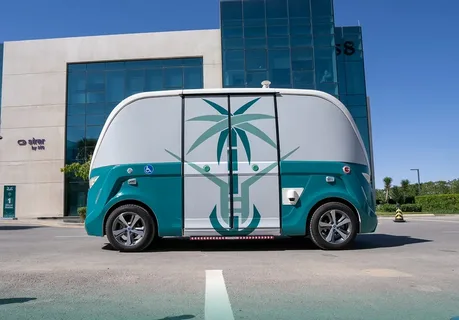The streets of Riyadh are no strangers to innovation but this time, the conversation isn’t about skyscrapers or smart grids. It’s about cars that drive themselves. Over the past few months, self-driving cars in Riyadh have quietly begun transporting commuters around key locations like the Roshn Front and Princess Noura University. More than 1,000 people have already taken a ride, and the number is rising. But as the excitement builds, so does the debate: Is Saudi Arabia truly ready for an autonomous revolution, or are we racing faster than our own readiness?
A Vision Driven by Technology
The project, launched through a partnership between the Transport General Authority (TGA), Uber, and WeRide, marks a major milestone for Saudi Arabia’s Vision 2030 goals. It’s not just about convenience—it’s a statement about where the Kingdom sees itself in the technological hierarchy of the modern world.
With the government’s blessing and multiple ministries involved from Interior and Communications to the Saudi Data and Artificial Intelligence Authority the initiative represents a coordinated national effort to bring autonomous mobility into mainstream transport. Every vehicle currently has a human safety officer inside, but the underlying goal is clear: a future where human drivers may no longer be required.
Supporters argue that self-driving cars in Riyadh could ease congestion, reduce accidents, and support environmental sustainability by cutting idle emissions. For a city rapidly growing in both population and ambition, automation feels like a natural next step.
The Case for Caution
Yet not everyone is sold on the idea. Critics question whether Riyadh’s current infrastructure and public awareness are ready for autonomous traffic. Even with safety officers on board, doubts linger about software reliability, road unpredictability, and data privacy.
Saudi roads are dynamic filled with unexpected turns, diverse driving styles, and unpredictable pedestrian behavior. Can artificial intelligence truly adapt to this environment? Moreover, skeptics raise ethical questions: who bears responsibility if a self-driving car makes an error—the AI developer, the transport authority, or the passenger?
There’s also the issue of employment. As the fleet of autonomous vehicles grows, what happens to thousands of drivers currently working for ride-hailing companies? The promise of progress, some argue, may come at the cost of livelihoods.
A Test Ground for Tomorrow
Despite concerns, Riyadh’s pilot program isn’t slowing down. The TGA has announced plans to expand routes and increase the fleet to more than 20 vehicles by year’s end. This isn’t just a local experiment—it’s a glimpse of the future urban ecosystem Saudi Arabia envisions.
Interestingly, the autonomous revolution doesn’t stop with commuters. A parallel project between Roshn Group and Jahez is already using driverless delivery robots to transport food across the Roshn Front. Beyond speed and convenience, these efforts aim to reduce carbon emissions a subtle reminder that this isn’t just a technological movement, but also an environmental one.
The Bigger Debate: Efficiency vs. Humanity
Every innovation brings disruption. Self-driving cars in Riyadh symbolize a conflict between two visions: one of progress and precision, and another rooted in human presence and employment. Supporters see it as a leap toward smart urban living safer roads, faster commutes, and greener air. Opponents see it as a risky experiment, where people might become secondary to machines.
Perhaps the real answer lies somewhere in between. If Riyadh can balance innovation with inclusivity protecting jobs while improving safety then this pilot could become a blueprint for cities across the Middle East.
Final Word: A Turning Point, Not the End of the Road
The debate over self-driving cars in Riyadh isn’t just about technology it’s about trust. Trust in algorithms, in safety systems, and in the nation’s ability to adapt. Whether this experiment becomes a permanent fixture or a cautionary tale, one thing is certain: the wheels of change are already turning, and Riyadh is driving straight into the future.

Leave a Reply